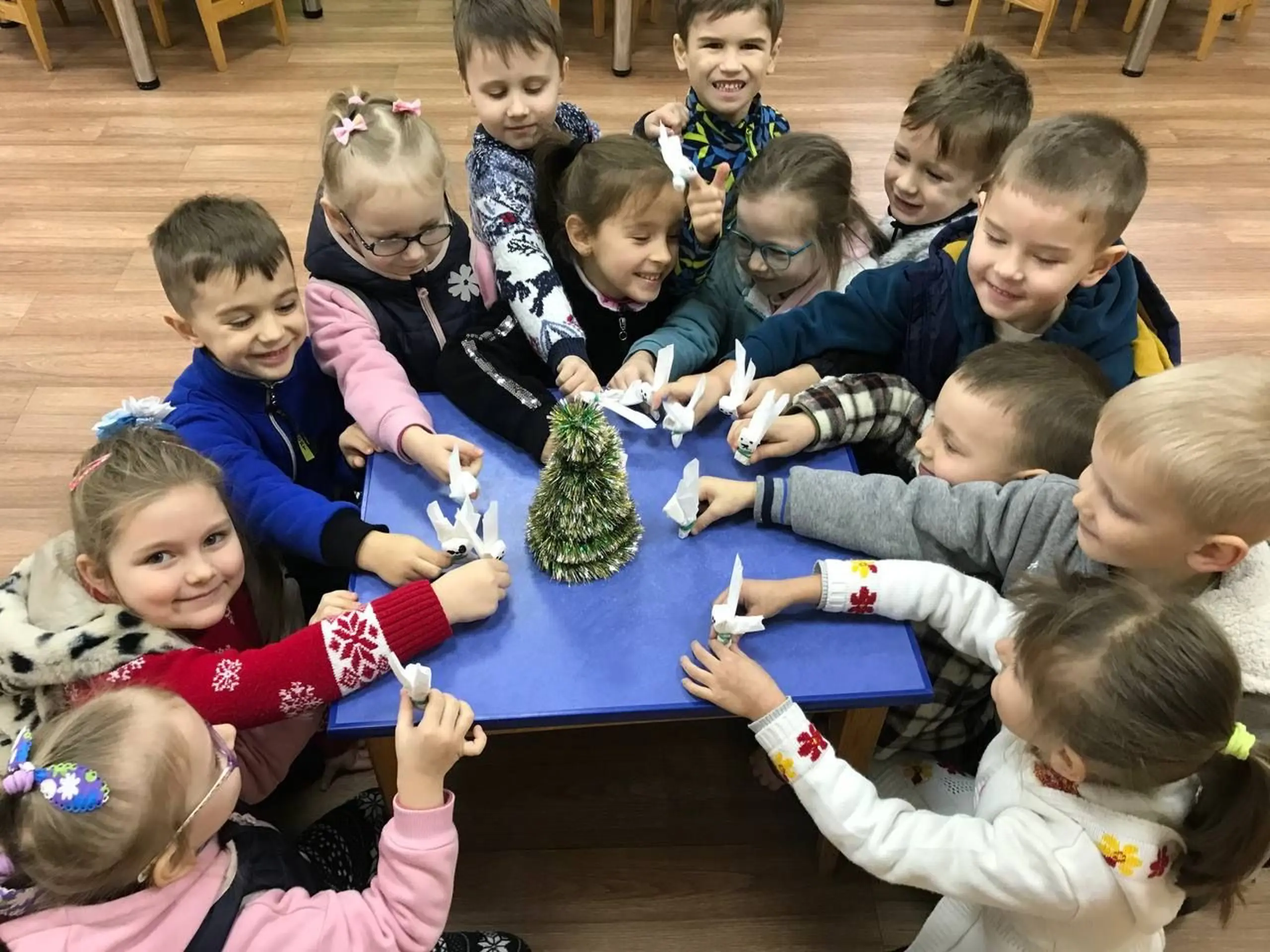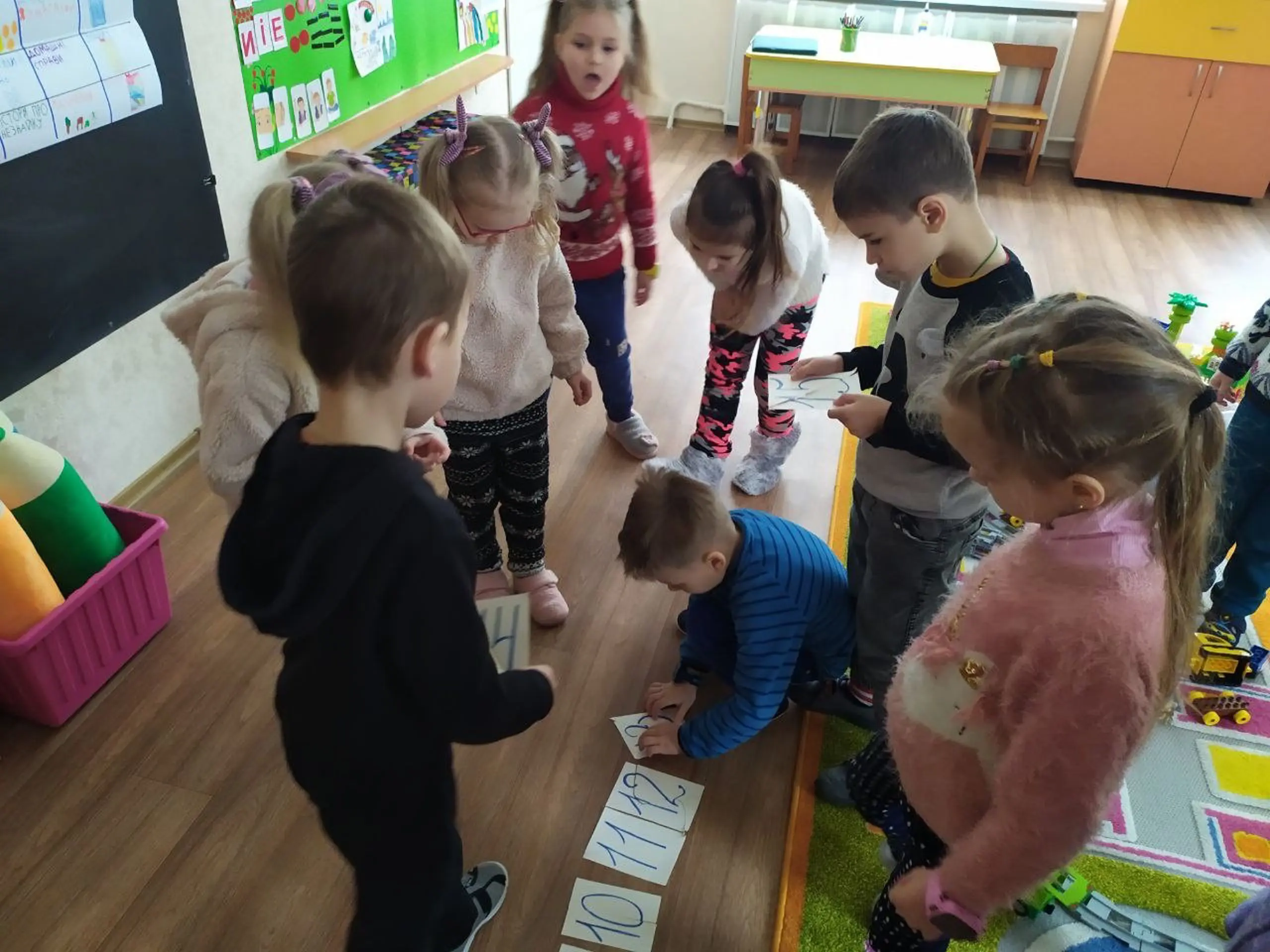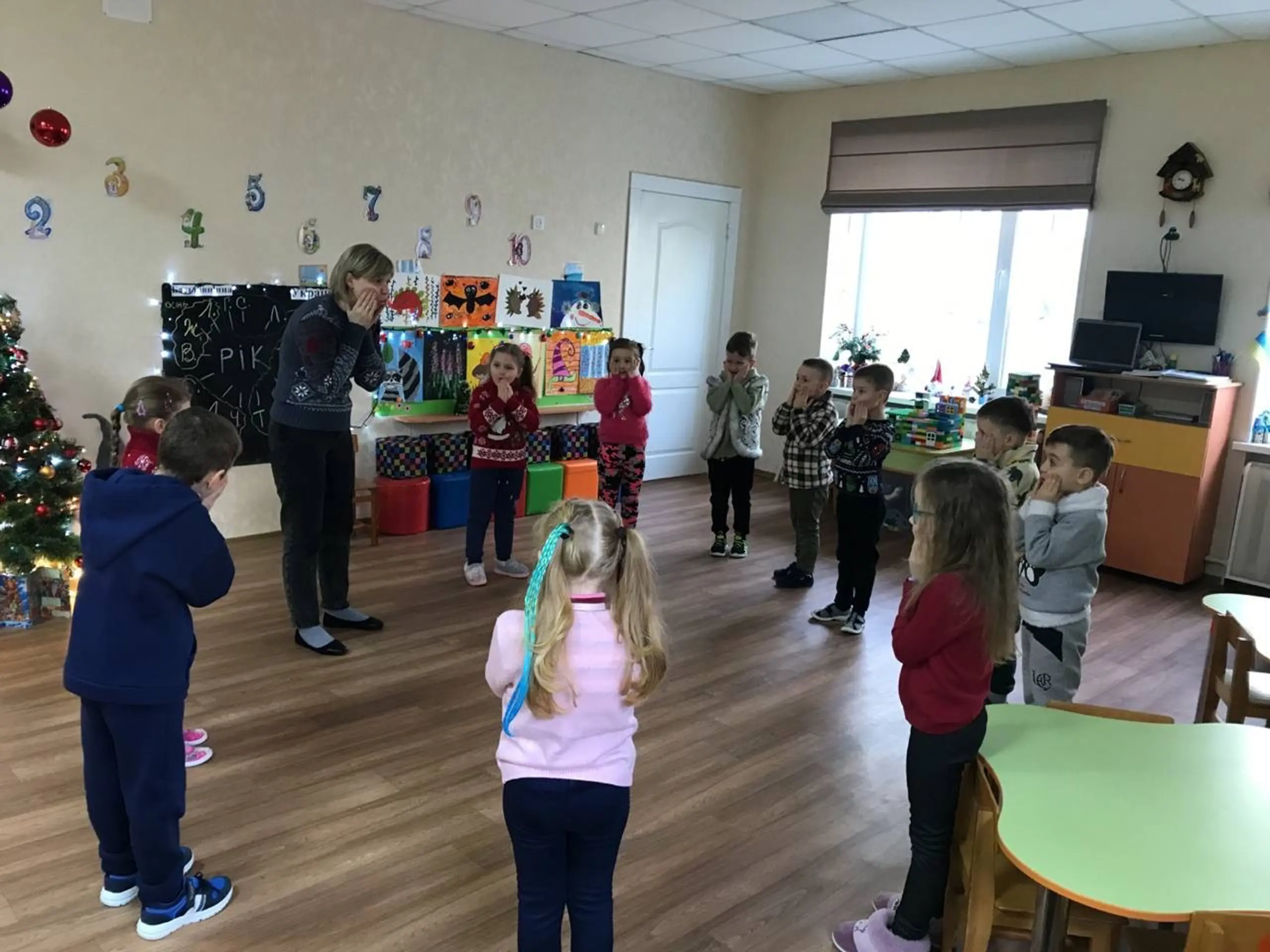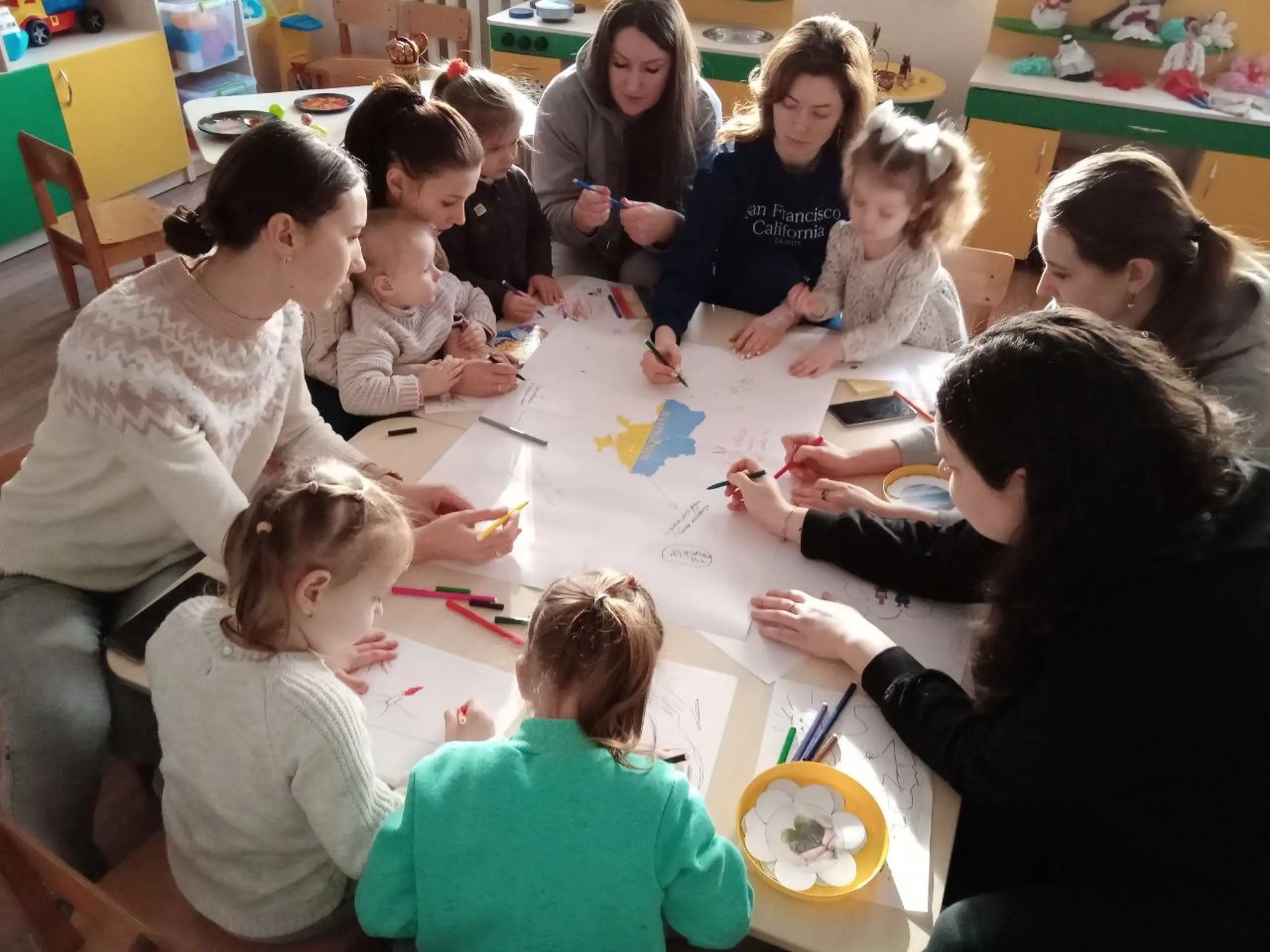Today, we are putting focus on the incredible will power and strength of teachers
who not only ensure that Ukrainian children keep learning but also are deeply
committed to their wellbeing.
More than 12 years ago we started our collaboration with the Ukrainian Ministry of Education with the goal to equip Ukrainian children with the skills they need to thrive through playful learning. Since then, we’ve worked with all public primary schools, 300 pre-schools, 35 pedagogical universities and colleges, and all 25 in-service teacher training institutions. Through this work, we’ve reached over 80.000 teachers and 1.5 million students.
The war put a stop to much important work. But even a war cannot stop teachers in Ukraine. Early childhood educator Olga G. tells us that “learning cannot be put on hold, because every day is important in the development of a child. As a teacher, I clearly understand that now is not the time when the educational process can be transferred exclusively to parents, because every family experiences the war in different ways.”
Iryna Morgun, methodologist of the Department of Primary and Preschool Education of the M.V.Ostrogradsky Poltava Academy of Continuing Education says that “now, more than ever, we are motivated to ensure that children receive quality education.” Iryna says she sees the support and development of children, especially their social and civic competences, as the best investment in the future.




